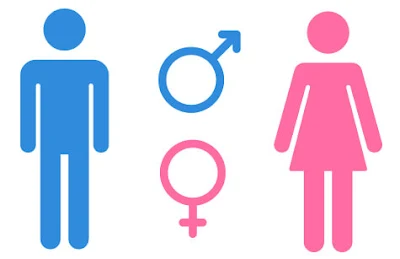Picture this – a woman and a man, both with diabetes, yet their experiences and management techniques couldn't be more different. Diabetes doesn't discriminate, but it sure does impact individuals differently based on gender. Let's explore the nuanced world of gender-specific considerations in diabetes management.
When it comes to managing diabetes, it's crucial to understand and address the unique needs of each gender. Here are six vital considerations for effectively managing diabetes while considering gender differences.
Biological Factors:
Gender differences in hormonal composition can significantly influence how diabetes manifests and is managed. For women, fluctuations in estrogen and progesterone levels throughout the menstrual cycle can impact insulin sensitivity and blood glucose levels. This means that their insulin needs may vary at different times of the month.
Men, on the other hand, tend to have higher muscle mass, which can affect their glucose metabolism and insulin requirements. Understanding these biological nuances is crucial for developing tailored treatment plans and medication adjustments based on gender-specific needs.
Risk Factors and Symptoms:
While the classic symptoms of diabetes such as increased thirst, frequent urination, unexplained weight loss, and fatigue are common in both men and women, there are gender-specific variations that may signal the presence of diabetes. Women with diabetes, for instance, may experience subtle symptoms such as fatigue, urinary tract infections, and yeast infections, which could be early indicators of the condition.
Men, on the other hand, might exhibit more pronounced symptoms like erectile dysfunction. Recognizing and understanding these gender-specific symptoms is essential for early detection, diagnosis, and timely intervention.
Psychological Impact:
Living with diabetes can take a toll on an individual's mental and emotional well-being, and the psychosocial impact can differ based on gender. For women, hormonal fluctuations associated with menstruation, pregnancy, and menopause can directly influence blood sugar levels, mood, and overall emotional well-being.
Additionally, societal pressures related to body image and self-worth can add another layer of complexity to managing diabetes. Men, on the other hand, might grapple with societal expectations of being strong and independent, which can make it challenging for them to seek support and openly address their emotional struggles.
Tailored psychological support, education, and coping strategies that account for these gender-specific challenges are essential in diabetes management.
Nutrition and Dietary Needs:
Men and women often have different nutritional requirements, and this holds true for diabetes management as well. Women with diabetes should consider how certain foods and dietary patterns can affect their blood sugar levels during different phases of the menstrual cycle.
Hormonal fluctuations can impact insulin sensitivity and carbohydrate metabolism, making it important for women to be mindful of their nutritional choices throughout the month. Men, on the other hand, might need to focus on calorie intake, macronutrient balance, and weight management to prevent complications associated with diabetes.
Tailoring nutrition plans based on these gender-specific needs can significantly impact blood sugar control and overall health outcomes.
Exercise and Physical Activity:
Physical activity is a cornerstone of diabetes management, and gender-specific considerations come into play when designing exercise plans. Women with diabetes may need to consider the impact of exercise on hormonal fluctuations, bone health, and overall well-being. For example, regular physical activity can help manage the symptoms of premenstrual syndrome and menopause, but the intensity and type of exercise that is most effective may vary.
Men, on the other hand, might benefit from incorporating strength training to improve insulin sensitivity and mitigate the risk of cardiovascular complications associated with diabetes.
Tailoring exercise recommendations to account for these gender-specific differences can optimize the benefits of physical activity in diabetes management.
Healthcare Disparities:
Gender-specific disparities in healthcare access and quality can significantly impact diabetes management. Women, particularly those from marginalized communities, may face challenges in accessing appropriate care due to socioeconomic factors, biases within the healthcare system, or lack of awareness about gender-specific diabetes risk factors.
Addressing these disparities is crucial for ensuring equitable access to resources, education, and support for all individuals affected by diabetes. By acknowledging and working to eliminate gender-based healthcare disparities, we can create a more inclusive and effective approach to diabetes management that prioritizes the unique needs of men and women.
By understanding, acknowledging, and addressing these gender-specific considerations in diabetes management, healthcare providers and individuals alike can work towards a more personalized and inclusive approach to diabetes care.
Conclusion:
In the realm of diabetes management, recognizing and addressing gender-specific considerations is paramount for providing personalized care that yields better outcomes. By understanding the biological, psychological, and social nuances that differentiate the experiences of men and women with diabetes, healthcare providers can tailor interventions and support to meet the individual needs of each gender.
Sources:
1. American Diabetes Association - https://www.diabetes.org
2. National Institute of Diabetes and Digestive and Kidney Diseases - https://www.niddk.nih.gov
3. The Lancet Diabetes & Endocrinology - https://www.thelancet.com/diabetes-endocrinology
By shedding light on gender-specific considerations in diabetes management, we can take a step towards creating a more inclusive and effective approach to diabetes care that acknowledges and honors the diverse needs of all individuals affected by this condition.

0 Comments
Post a Comment
Share your views